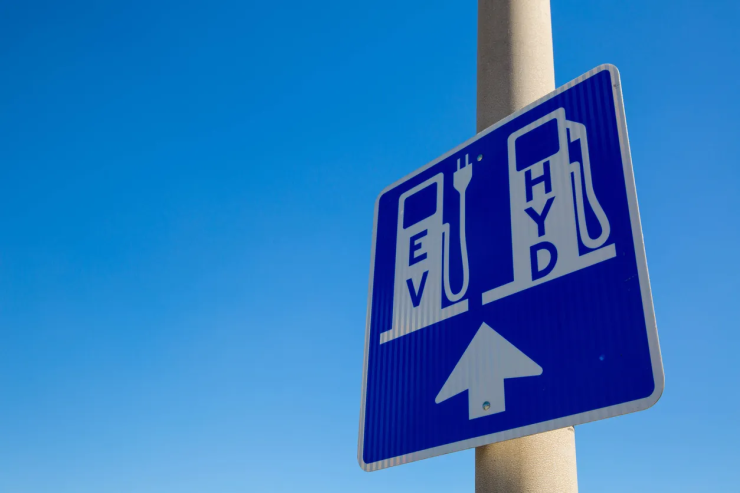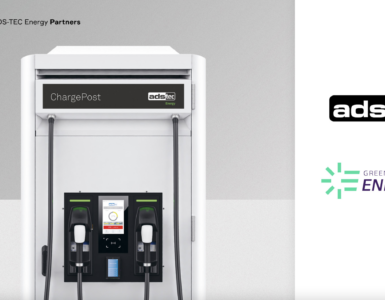Let’s end this unhelpful competition between hydrogen and batteries – Hycap.
Ask the wrong question and you will inevitably get the wrong answer.
When it comes to decarbonisation, the question has for too long been: “which is the better solution, hydrogen or batteries?”
The fault line runs through a number of sectors, most notably transport, domestic heating and energy storage.
🔥 What about we co-host a webinar? Let's educate, captivate, and convert the battery economy!
Batteries News is the global go-to online magazine for the battery industry, we can help you host impactful webinars that become a global reference on your topic and are an evergreen source of leads. Click here to request more details
In transport, battery electric vehicles (BEVs) are vying with hydrogen fuel cell vehicles (HFCVs); in domestic heating it’s heat pumps versus hydrogen boilers; while in energy storage it’s large battery stacks against compressed or liquefied hydrogen.
High-profile public spats on this topic add fuel to the fire. The media can’t help but report on any developments in the ongoing clash between Tesla CEO Elon Musk and Australian billionaire Andrew Forrest, executive chairman of Fortescue Future Industries (FFI).
Notable quotes from the pair include Musk calling hydrogen fuel-cell vehicles “mind-bogglingly stupid” and Forrest referring to Musk as “just a businessman” rather than a “real climate avenger.”
Through Tesla, Musk sells BEVs, battery-based home energy storage systems called Powerwall and battery-based commercial energy storage systems called Megapack. You could say he is heavily invested in batteries.
Forrest’s FFI is one of the world’s biggest investors in green hydrogen, produced by splitting water with electrolysers powered by renewable energy. He envisions using Australia’s huge solar and wind resources to produce enough green hydrogen to meet Australia’s needs for decarbonisation and have some left over for export.
Both are visionaries and both will be needed as the world draws on both batteries and clean hydrogen to decarbonise at pace to reach 2050 net zero targets and avoid catastrophic atmospheric warming.
When it comes to transport, most BEVs are already selling in their millions and have a growing infrastructure to support them, but issues of range, recharging times and environmental impact suggest they shouldn’t be the only game in town.
UK government-backed agency the Advanced Propulsion Centre said in a report last month that likely shortages of lithium for electric battery production means that the UK should mitigate against a lack of supply by investing in hydrogen fuel cell vehicles.
Batteries also appear to be unsuitable for larger vehicles. That’s why Ford is developing a hydrogen fuel cell version of its heavy-duty truck, the Super Duty, and not a battery one.
Jim Farley, Ford CEO
If you’re pulling 10,000 pounds, an electric truck is not the right solution.
“And 95% of our customers tow more than 10,000 pounds.”
Get even bigger and fuel cells look increasingly like the solution of choice with the likes of Daimler Trucks, Hyundai, Volvo Trucks and Hyzon Motors recently releasing details of vehicles at varying stages of development.
Then there is the matter of choice. For many drivers, range is the most important factor when purchasing a car, while for others that is less of an issue. Some are prepared to pay a premium for the driving experience, while others are more focused on economics. For instance, hydrogen seems likely to dominate the supercar market thanks to its suitability for internal combustion engines.
When it comes to domestic heating, proponents of air-source heat pumps tout low running costs while ignoring size and high installation costs among other issues, making them inappropriate for a row of older terraced houses (of which there is no shortage in the UK), while hydrogen boilers offer a technology that, while currently more expensive to run, would leave the homes of their users largely intact. This is not an ‘either or’ situation.
Heat pumps are good for newer builds, but most UK homes cannot accommodate them due to their significant size, while low water temperatures mean replacing central heating systems with larger radiators.
Heat pumps cost between £7,000 and £13,000 to install, according to Which?, compared to what will be a cost of around £3,000 for a hydrogen-ready gas boiler. However, those lobbying for a heat pump-only solution tend to ignore upfront costs and focus only on running costs.
For some, the upfront cost may be something they are able to swallow, while for others, a smaller upfront investment may be more suitable. If we were to rely solely on heat pumps, many households would be stuck with natural gas for decades, which is both expensive and responsible for funding Vladimir Putin’s war in Ukraine.
Consumers should have the choice of both hydrogen boilers and heat pumps.
The same goes for battery energy storage compared with hydrogen fuel cells. Both have their pros and cons and are more suitable for some applications than others.
Batteries are highly efficient for short-term energy storage, but losses from self-discharge are significant, making them wholly unsuitable for anything more than a few hours at a time at grid scale.
Green hydrogen, on the other hand, can be stored for months, making it suitable for inter-seasonal energy storage as well as shorter-duration applications.
Again, there is no need for either/or thinking. The question we should be asking is whether we can give end-users a choice of hydrogen and electric options, whether it be for transport, energy storage or home heating and let them decide how to decarbonise.
Investment in the hydrogen economy alongside electrification will provide choice, help us hedge against control of battery raw materials by China and, ultimately, give the world a greater chance of decarbonising in time to avoid devastating levels of global warming.
READ the latest Batteries News shaping the battery market
Let’s end this unhelpful competition between hydrogen and batteries, October 11, 2022








